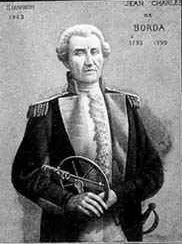
Full Name: Thomas Henry Huxley
Birth Year: 1825
Death Year: 1895
Nationality: English
Professions: Biologist, Anatomist, Academic
1825 – Thomas Henry Huxley, English biologist, anatomist, and academic (d. 1895)
Thomas Henry Huxley: The 'Darwin's Bulldog'
Born in 1825 in Ealing, London, Thomas Henry Huxley came into a world on the brink of scientific revolution. His father was a schoolmaster, but young Huxley had his sights set on the unknown a path that would eventually lead him to become one of the most prominent biologists of his time. However, his academic journey wasn't linear. Financial difficulties forced him to leave school at just 12 years old, yet this setback didn't deter him; instead, it fueled his relentless curiosity about nature and life.
In a twist of fate, at the age of 18, he joined the Royal Navy as an assistant surgeon aboard HMS Rattlesnake. Ironically, while he started his career focused on medicine and surgery fields that seemed far removed from biology this very expedition to Australia and New Guinea ignited a lifelong passion for marine biology. During this journey, he collected specimens and conducted research that would lay the groundwork for many future scientific discussions.
A Catalyst for Change
Upon returning to England in 1850, Huxley faced an academic landscape dominated by rigid religious doctrines. Yet he emerged not just as a student of science but as its fervent advocate. Who knows how much influence those early voyages had on shaping his views? Perhaps they instilled in him a belief that science could uncover truths obscured by tradition.
As he began to lecture and publish papers across various scientific fields anatomy, paleontology, embryology the brilliance of his intellect shone through every word. He adopted an engaging style that made complex ideas accessible to all. It was during these formative years that he famously declared himself "Darwin's Bulldog," passionately defending Charles Darwin’s theory of evolution by natural selection against fierce opposition from both religious institutions and fellow scientists alike.
The Great Debate
The infamous debate between Huxley and Bishop Samuel Wilberforce at the British Association for the Advancement of Science in Oxford in 1860 has become legendary among historians of science. Amidst rising tensions surrounding Darwin’s ideas regarding human evolution considered blasphemous by many Huxley's calm demeanor contrasted sharply with Wilberforce’s fiery rhetoric.
"If I am not mistaken," Huxley retorted boldly during their exchange about human ancestry; "the question is whether you are descended from apes." This moment marked not just personal triumph but also signaled a shift towards accepting evolutionary theories within respectable society.
A Legacy Forged Through Education
However compelling Huxley's arguments were against creationism; they formed only part of his legacy. In addition to public discourse on evolution, he significantly contributed through education reform the establishment of institutions dedicated solely to scientific education was close to his heart.
"I want my students...to pursue knowledge without fear!" He passionately expressed during one lecture a motto which reverberated throughout educational reforms in Britain leading into modern times.


